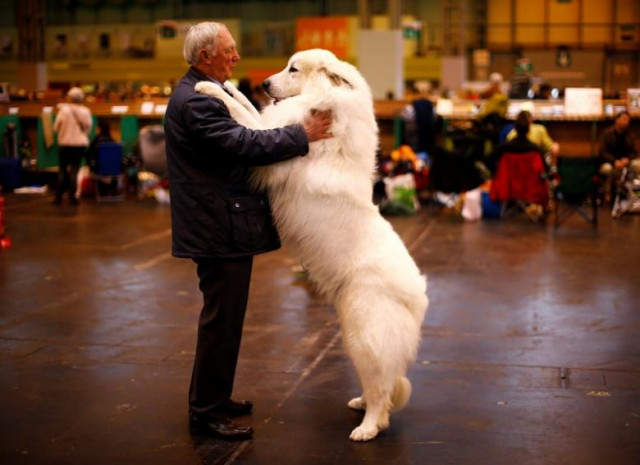Dogs can talk to humans, study reveals
Volunteers were asked to rate sounds based on 5 emotional stages: aggression, fear, despair, happiness and playfulness

Volunteers were asked to rate sounds based on five emotional stages: Aggression, fear, despair, happiness and playfulness. PHOTO: REUTERS
The research, published in the Royal Society Open Science Journal, involved 40 volunteers who listened to different growls of 18 dogs guarding their food and facing a threatening stranger or while playing tug-of-war. They managed to identify 63% of barks – which the researchers said was a number significant enough to not be taken as guesswork.
Tragic end: Stray dogs maul boy to death
While the participants were able to classify 81% of ‘play’ growls, translating food, guarding and threatening sounds was on the lower side. According to author Dr Tamas Farago of Eotvos Lorand University in Hungary, "participants associated the correct contexts with the growls above chance.”
The study also found women to be better at recognising different growls than men. "Moreover, women and participants experienced with dogs scored higher in this task,” Farago and his team stated.
The study showed dogs make more short growls during play compared to when they were fearful or aggressive. It also found play and food sounds to have different characteristics.
The experiment also involved identifying contexts of the sounds man’s best friend makes, which enabled scientists to note a “significant effect” on reading emotions. Volunteers were asked to rate sounds based on five emotional stages: aggression, fear, despair, happiness and playfulness.
Civil society takes to the streets for street dogs
"Our results indicate that dogs communicate honestly their size and inner state in serious contest situations, where confrontation would be costly, such as during guarding of their food from another dog,” the study concludes. "At the same time, in contexts with assumedly more uncertain inner states, such as in play or when threatened by a stranger, they may manipulate certain key parameters in their growls for an exaggerated aggressive and playful expression.”
It added: "According to our results, adult humans seem to understand and respond accordingly to this acoustic information during cross-species interactions with dogs.”
This article originally appeared on the Telegraph.



















COMMENTS
Comments are moderated and generally will be posted if they are on-topic and not abusive.
For more information, please see our Comments FAQ